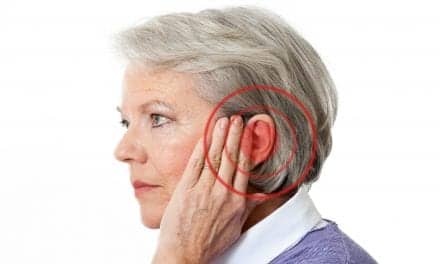Pittsburgh – Research from the University of Pittsburgh School of Medicine and funded by the National Institutes of Health (NIH) shows that tinnitus is caused by the under-inhibition of key neural pathways in the brain’s auditory center. The findings may lead to new drug therapies.
The research was published in the Proceedings of the National Academy of Sciences.
Prior studies have shown that auditory circuits in the brain are more excitable in tinnitus sufferers, but until now it has not been clear whether that is due to hyperactivity of excitatory neural pathways, reduced activity of inhibitory ones, or a bit of both, explained senior investigator Thanos Tzounopoulos, PhD, assistant professor of otolaryngology and neurobiology, Pittsburgh School of Medicine.
To identify what goes wrong in the brain’s auditory circuits, Tzounopoulos’ team created tinnitus in a mouse model. After confirming the tinnitus in the mice through accepted experiments, the scientists then sought to determine what had gone wrong in the balance of excitation and inhibition of the auditory circuits in the affected mice.
They used an imaging technique called flavoprotein autofluorescence (FA) to reveal tinnitus-related hyperactivity in slices of the brain. The FA imaging showed that the tinnitus group had a greater response than the control group to electrical stimulation. Most importantly, despite local stimulation, dorsae cochlear nucleus (DCN) responses spread further in the affected mice.
Tzounopoulos’ new experimental approach has resolved why tinnitus-affected auditory centers show increased responsiveness. After administering a variety of agents that block specific excitatory and inhibitory receptors and seeing how the brain center responded, his team determined that blocking an inhibitory pathway that produces GABA, an inhibitory neurotransmitter, enhanced the response in the region surrounding the DCN in the control brain slices more so than it did in the tinnitus slices.
"That means the DCN circuits are already ‘disinhibited,’ or blocked, in tinnitus," Tzounopoulos explained in a press release. "We couldn’t block inhibition anymore to elevate the evoked response, like we could in the normal brain. And, when we blocked another inhibitory circuit mediated by the neurotransmitter glycine, or when we blocked excitatory pathways, there was no difference in the responses between the groups."
Consequently, the researchers concluded that agents that increase GABA-mediated inhibition might be effective treatments for tinnitus. Tzounopoulos’ team is now trying to identify such drugs.
The research was funded by the National Institutes of Health, the US Department of Defense, the American Tinnitus Association, and the Albert and Ellen Grass Faculty Award.




